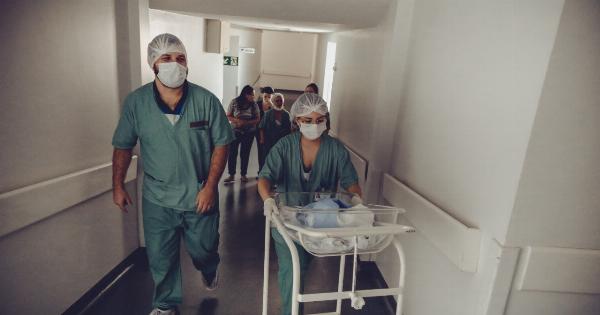For couples struggling with infertility issues, egg donation can be a viable option. It involves the process of using donated eggs from another woman to fertilize with the male partner’s sperm in vitro fertilization (IVF) procedures.
This process can provide the hope of pregnancy to couples who have been unable to conceive through traditional methods.
The Need for Egg Donation
There can be various reasons why egg donation is required. One of the common reasons is that the intended mother has a medical condition that prevents her from producing viable eggs.
This could be due to advanced age, damaged ovaries, premature menopause, or genetic conditions. Egg donation may also be necessary for male same-sex couples or single men who want to start their family through surrogacy.
The Process of Egg Donation
The process of egg donation typically starts with the egg donor undergoing a medical examination and screening process to ensure that she has a healthy reproductive system and is physically and mentally fit to undergo egg retrieval (egg collection).
This process involves medication to stimulate the ovaries to develop multiple eggs, which are then retrieved through a minor surgical procedure.
After egg collection, the eggs are fertilized with the partner’s sperm through the IVF procedure and then transferred to the intended mother’s uterus or a gestational surrogate.
In some cases, the embryos may be frozen until the time of transfer. It is important to note that the success rate of IVF procedures varies, and not all embryos may develop into healthy pregnancies.
The Choice of Egg Donor
Choosing an egg donor can be done through an agency or an in-house program. Some couples choose a known donor, such as a family member or friend.
An agency or in-house program may have a database of donors who have undergone extensive screening, including medical, psychological and genetic testing. The donor’s physical characteristics, ethnicity, and education level may also be considered when choosing a donor.
It is important to note that anonymity laws may vary by countries and states, and some donors may prefer an open or semi-open arrangement where they have limited contact with the child and their family.
Couples should discuss these options before selecting a donor.
Risks and Benefits of Egg Donation
Like any medical procedure, egg donation has risks and benefits. The risks associated with egg donation include ovarian hyperstimulation syndrome, infection, damage to surrounding tissues, bleeding, and anesthesia risks.
These complications are rare, but they should be discussed with the doctor before proceeding with egg donation.
The benefits of egg donation include the ability for couples to have a biological child, enhanced success rate of IVF, and the ability to choose an egg donor that matches the physical and/or ethnic characteristics of one of the intended parents.
The Cost of Egg Donation
Egg donation can be costly, as it involves various medical and legal fees. The cost can vary by the clinic, the donor’s compensation, and the number of IVF cycles required.
Insurance coverage is often limited for infertility treatments, and couples should consider the financial implications before proceeding with egg donation. Some clinics offer financing options, and couples should explore these options before proceeding with egg donation.
Legal and Ethical Considerations
Egg donation involves legal and ethical considerations that must be addressed before proceeding.
Before entering into an egg donation agreement, couples should consult with an attorney to ensure their rights are protected in the contract, and to understand the laws surrounding donor anonymity, parental rights, and inheritance laws. Ethical concerns may arise when choosing an egg donor based on physical characteristics, and couples should discuss these concerns with a counselor.
The Emotional Impact of Egg Donation
Egg donation can have a significant emotional impact on all parties involved, including the intended parents, the donor, and the child. Intended parents may experience a range of emotions, including grief, anxiety, and guilt.
Donors may also experience anxiety and emotional turmoil. Children born through egg donation may have questions regarding their biological origins, and should be given the appropriate support to understand their unique situation.
Counseling services are often available to help parties navigate the emotional impact of egg donation.
The Future of Egg Donation
Egg donation is a rapidly evolving area of reproductive medicine. Advancements in technology and research may lead to improved success rates and reduced risks.
The ethical and legal considerations of egg donation will continue to be discussed and debated, and it is important for couples to be informed and understand all aspects of egg donation before proceeding with this option.
Conclusion
Egg donation is a viable option for couples struggling with infertility issues. The process involves many medical, legal, and ethical considerations, and couples should be well-informed before proceeding with this option.
Egg donation can provide the hope of pregnancy and the ability to start or expand a family, but the emotional and financial implications must also be considered.































